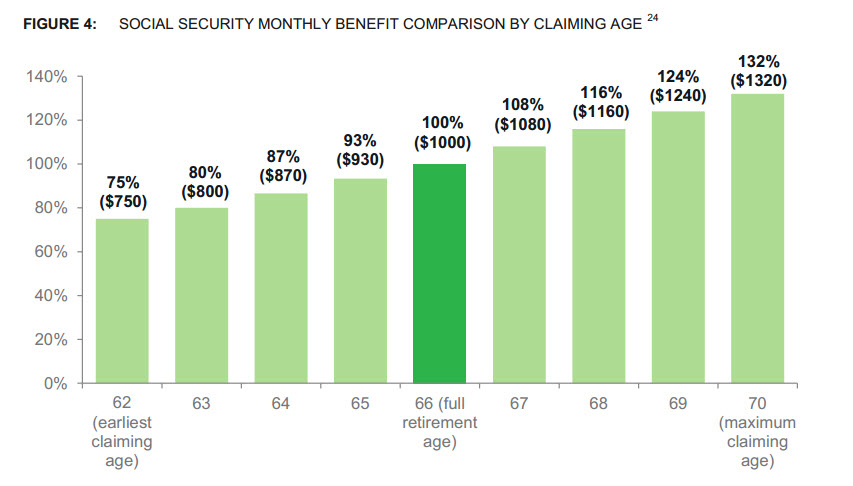Although I understand the differing SS paybacks between ages 62, 65, and 70, and I get the breakeven analysis for the cumulative payments, here is what I do not understand:
If I treat SS money in my retirement spending budget as money that now stays in MUCH longer-term investments (not removing those annual sums from my 401ks or ROTH buckets), then my breakeven point drastically changes if I assume some sort of compounding of the money LEFT in those accounts...
For instance, if I assume somewhere close to a 7% return over 30 years, nothing ever crosses over to a compounded return of those 'unspent' assets with taking it at 62 and letting it compound. (At least until my death at 94)
If I lower that return expectation to 5%, then, yes, my crossover happens at about 86. If I assume fixed income rates of 2%, yes, even lower, but I really don't expect to be that conservative until my 80s.
Am I thinking about this wrong? Where is my spreadsheet analysis misguided?
If I treat SS money in my retirement spending budget as money that now stays in MUCH longer-term investments (not removing those annual sums from my 401ks or ROTH buckets), then my breakeven point drastically changes if I assume some sort of compounding of the money LEFT in those accounts...
For instance, if I assume somewhere close to a 7% return over 30 years, nothing ever crosses over to a compounded return of those 'unspent' assets with taking it at 62 and letting it compound. (At least until my death at 94)
If I lower that return expectation to 5%, then, yes, my crossover happens at about 86. If I assume fixed income rates of 2%, yes, even lower, but I really don't expect to be that conservative until my 80s.
Am I thinking about this wrong? Where is my spreadsheet analysis misguided?

